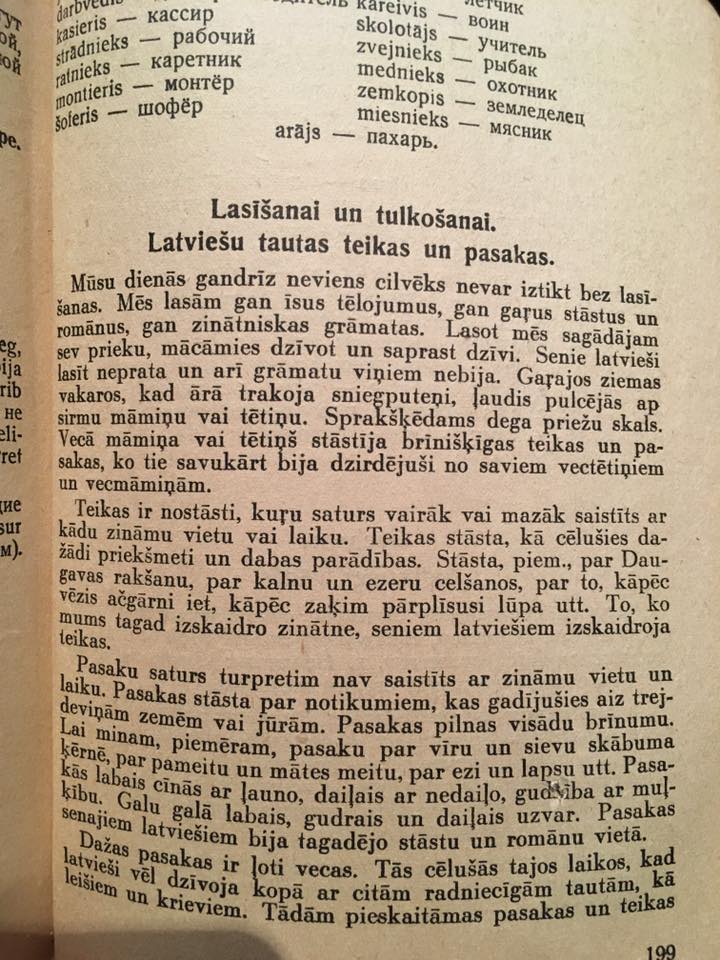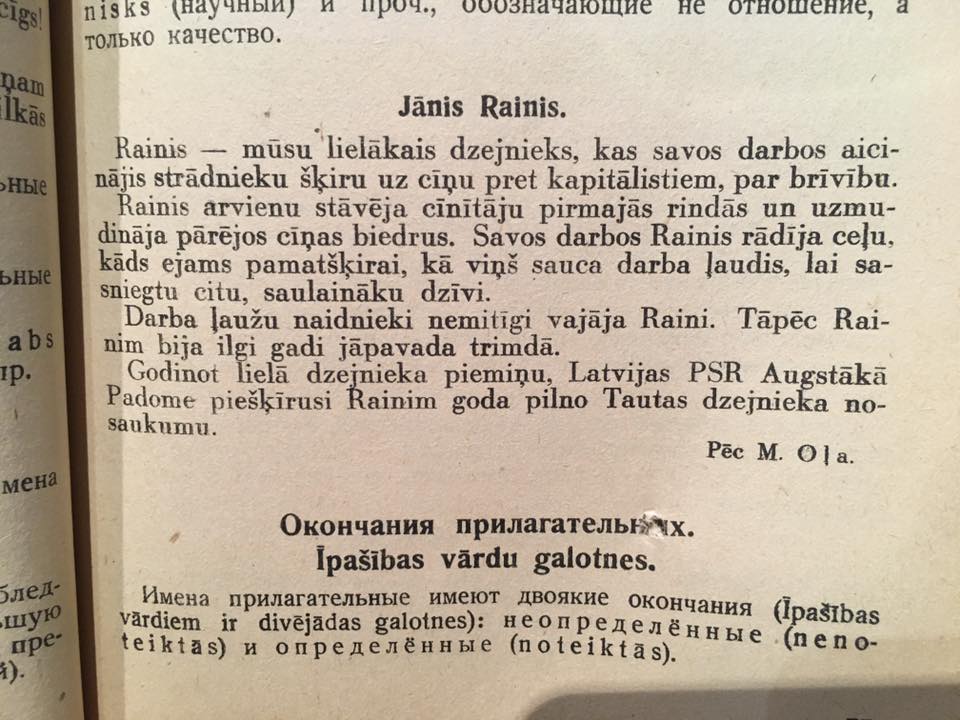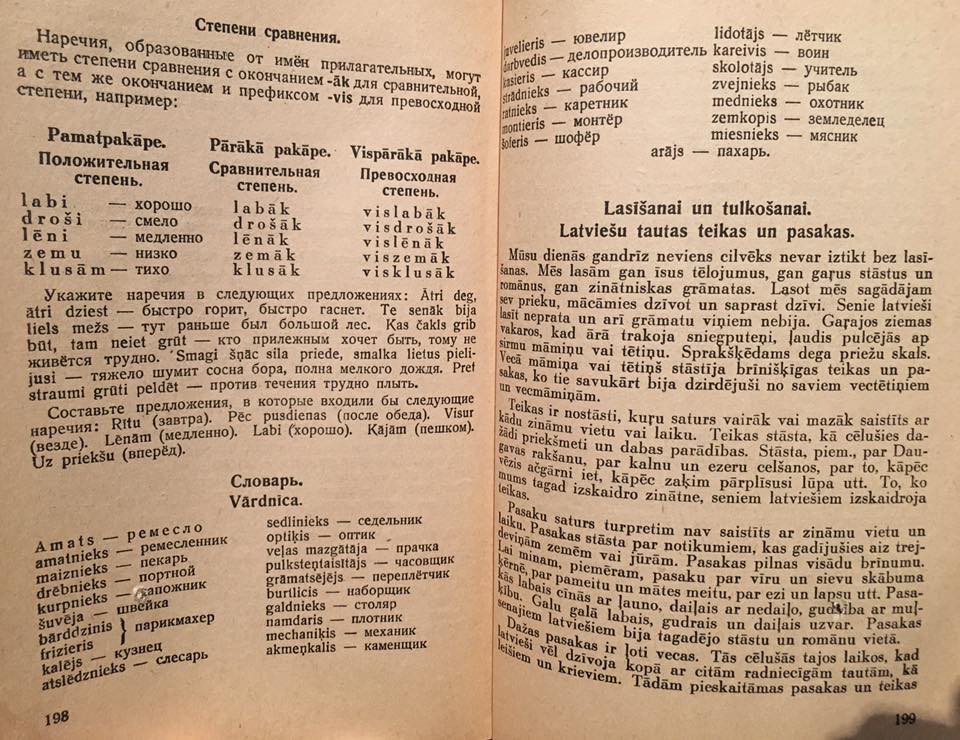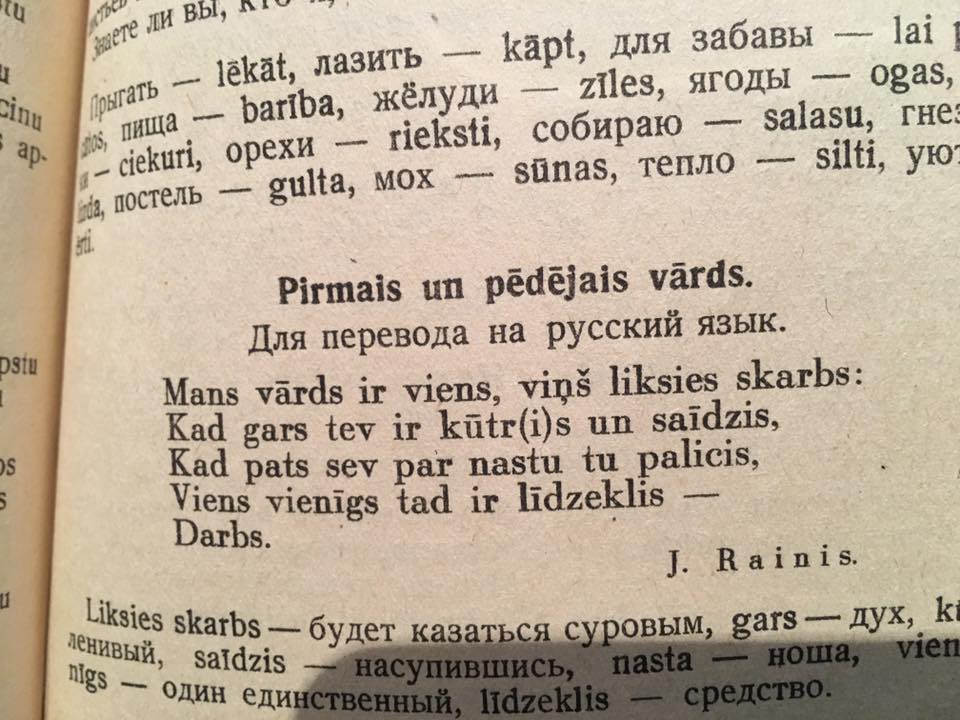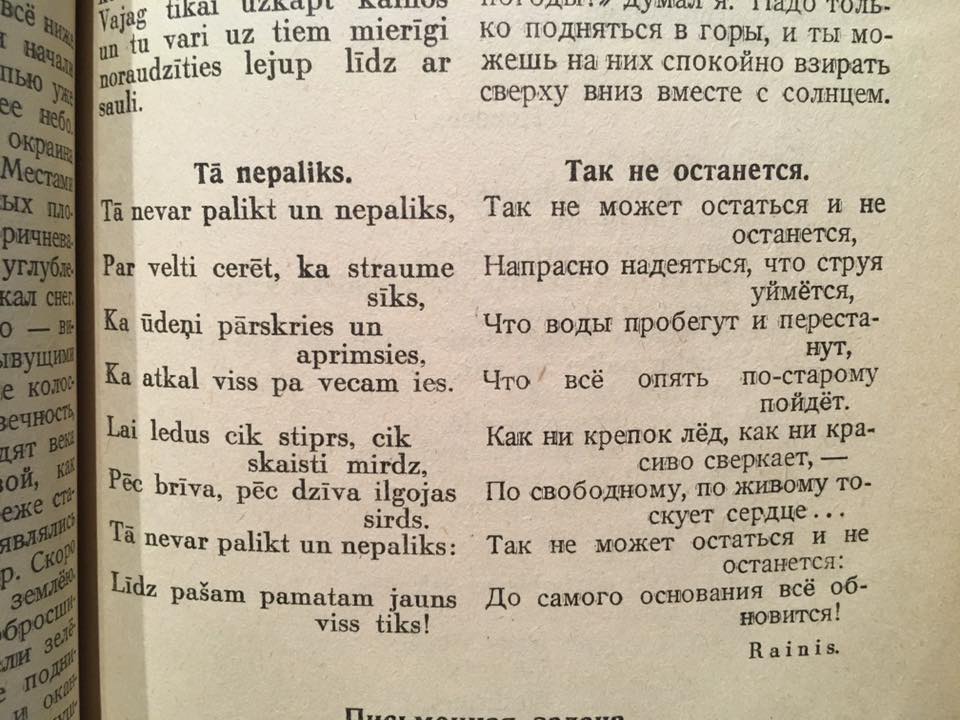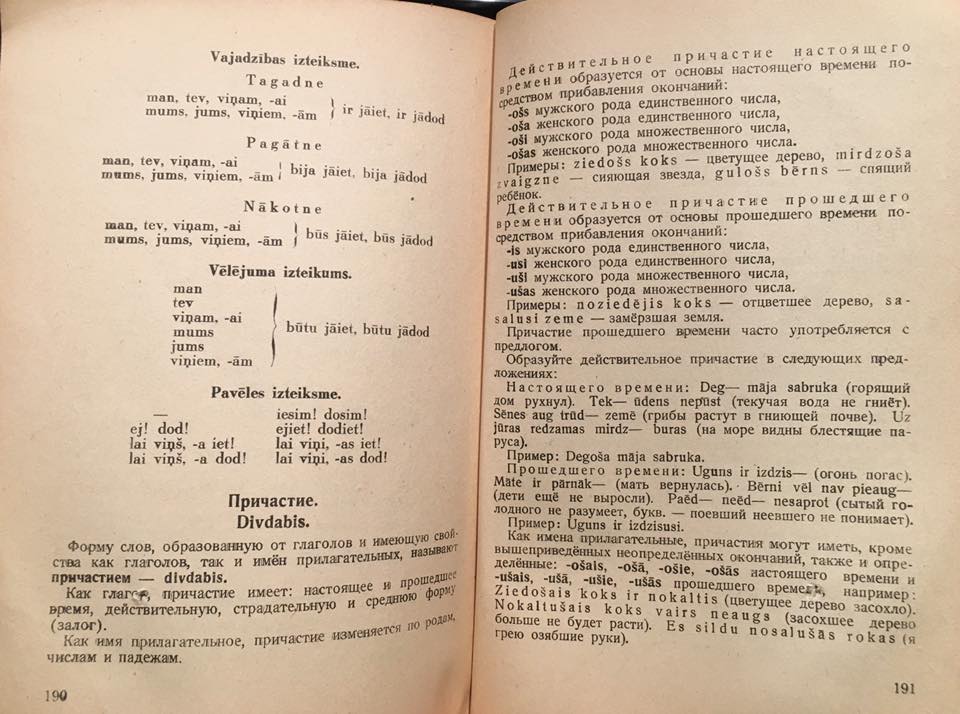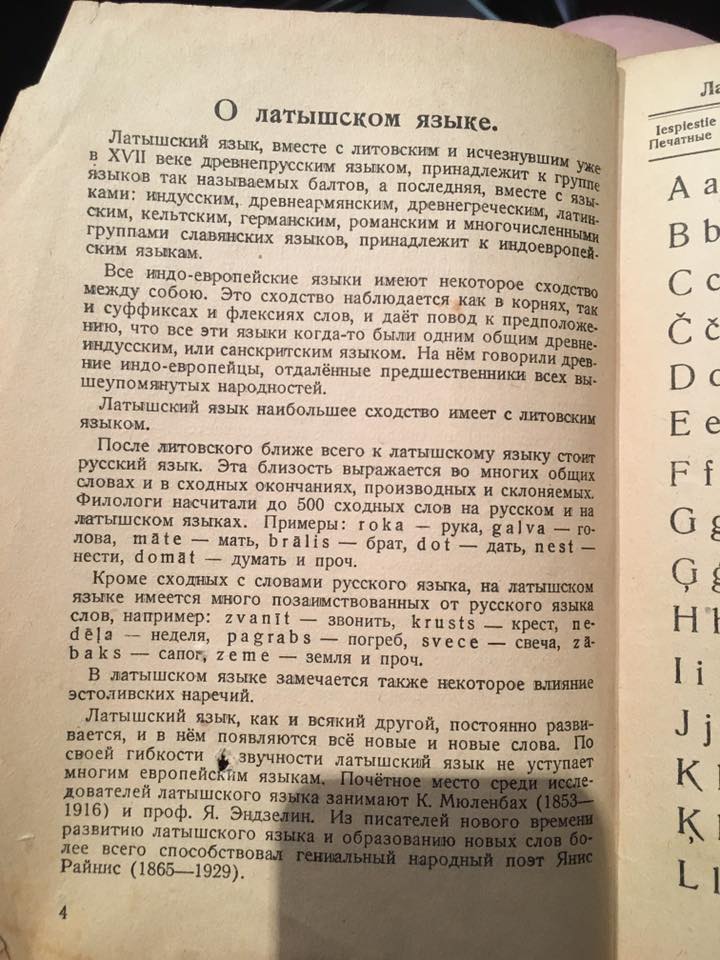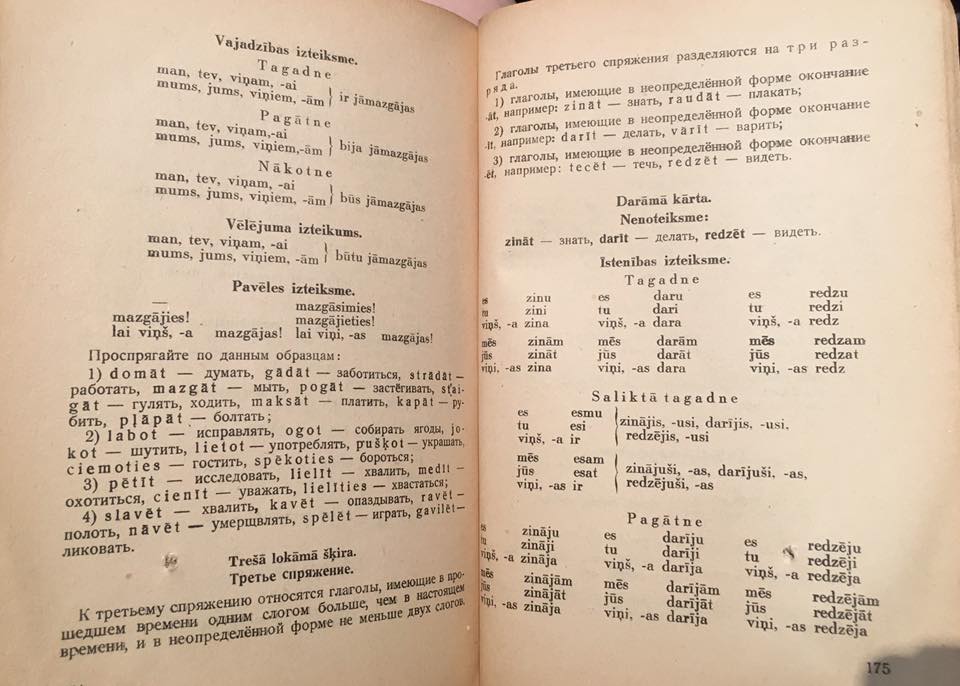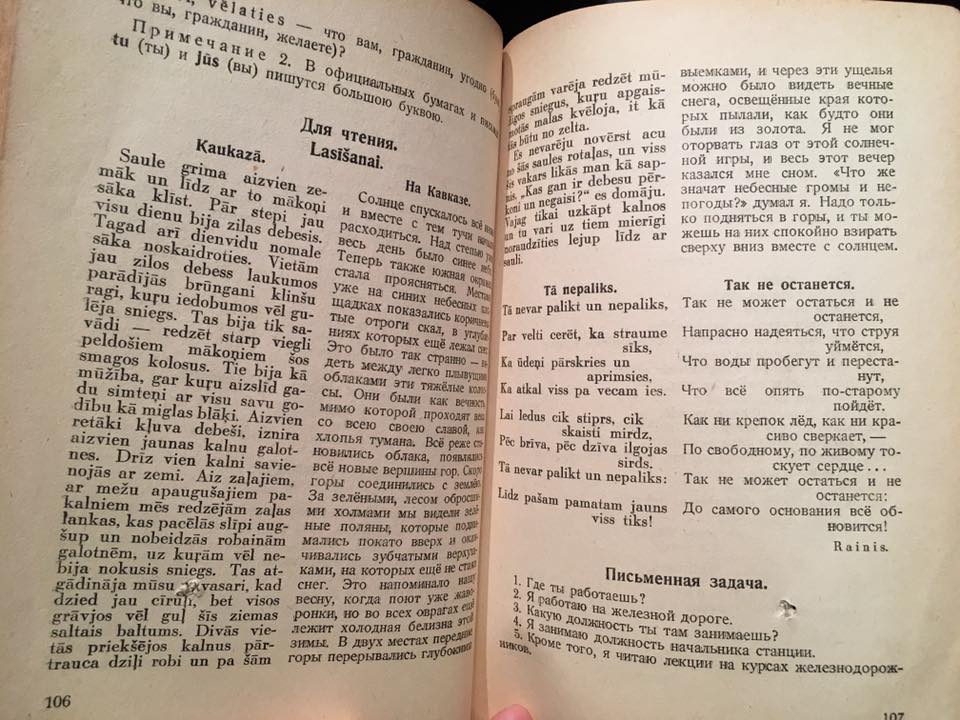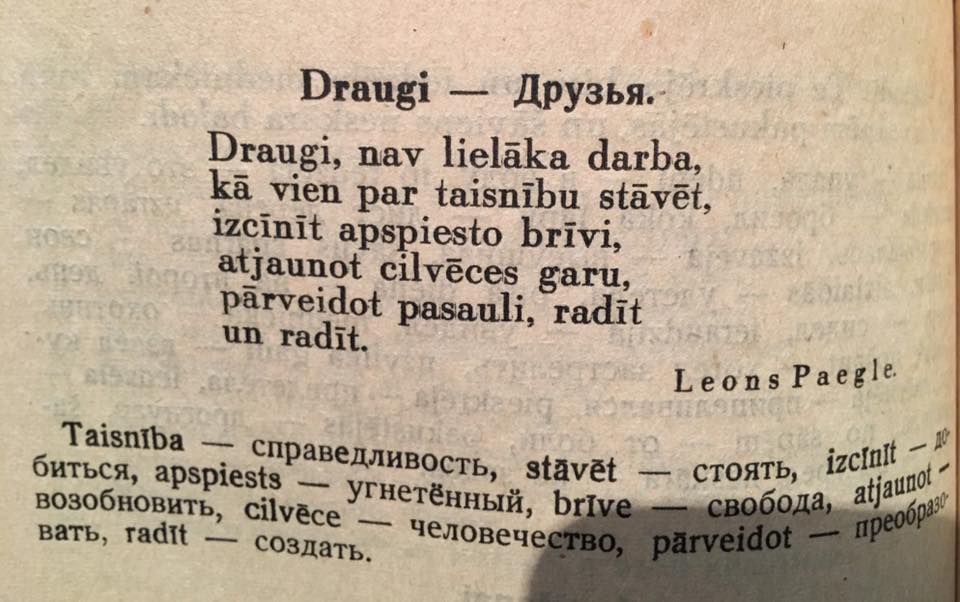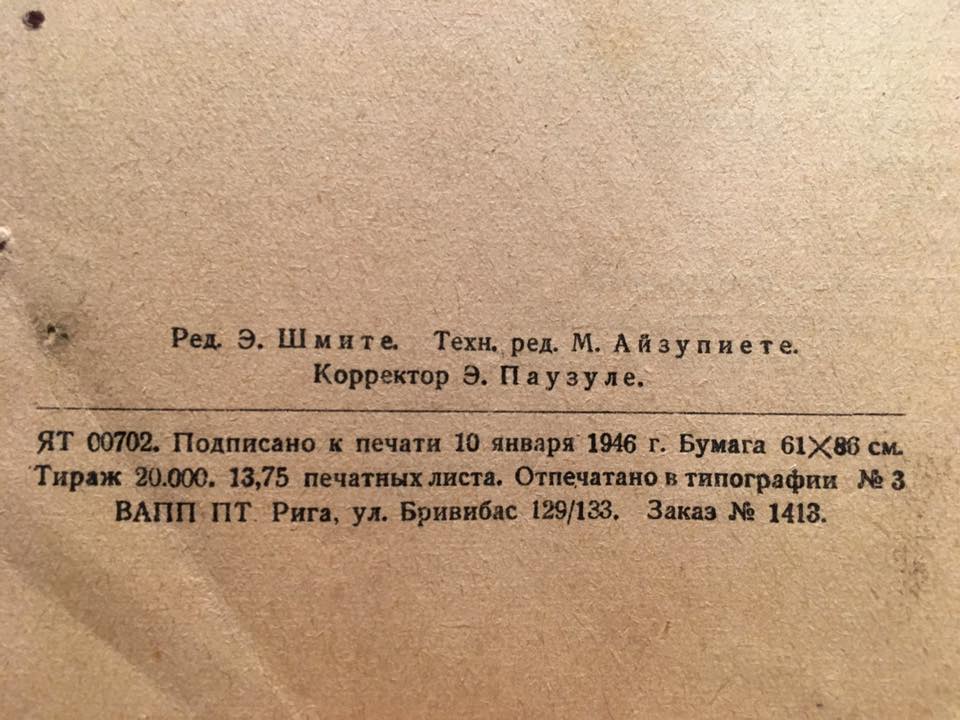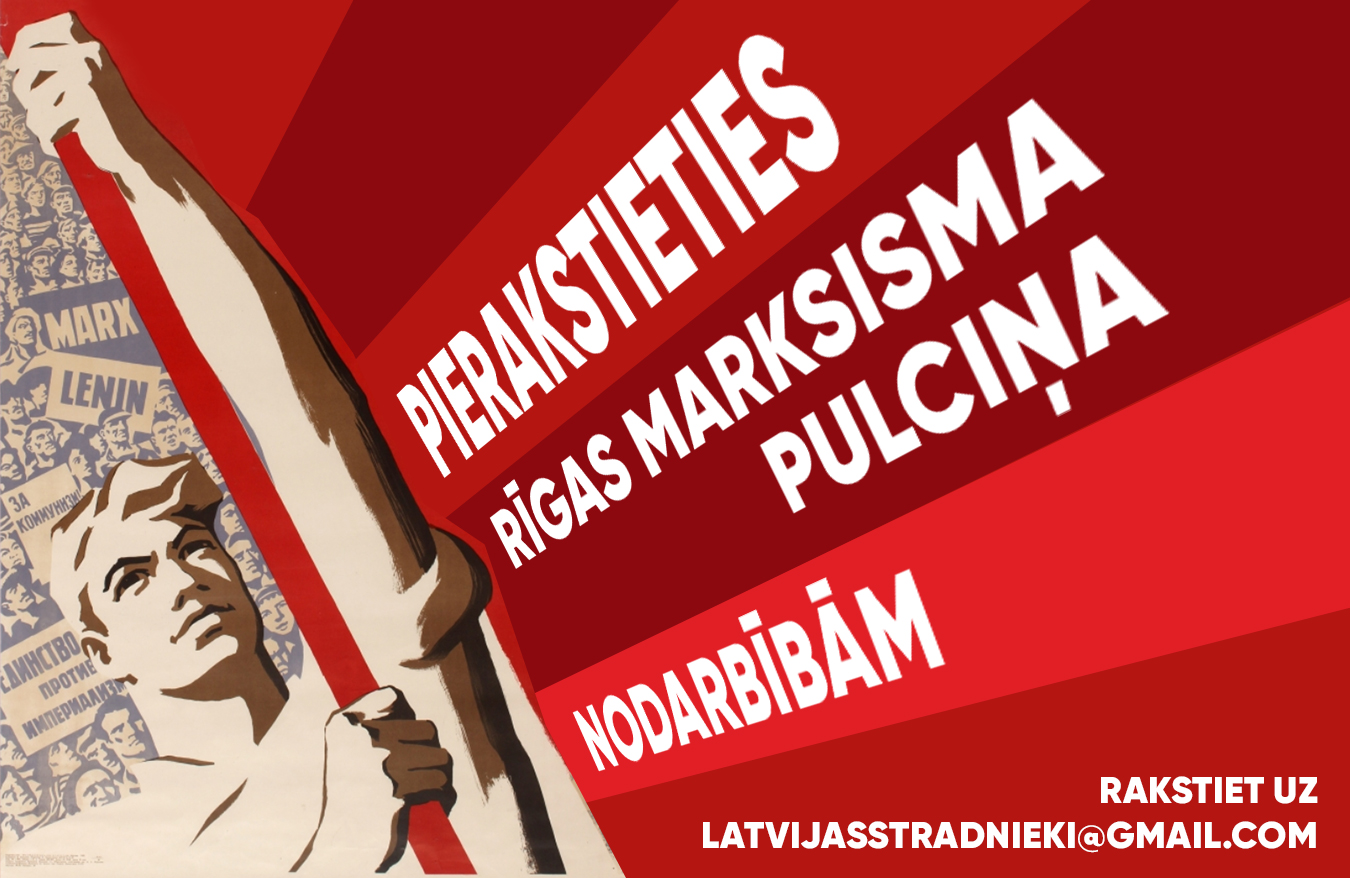Latvian language has the greatest similarity with the Lithuanian language. After Lithuanian, Russian is the closest language to the Latvian language. This closeness is expressed in many common words and in similar endings, derivatives and inclinations. Philologists have found up to 500 similar words in Russian and Latvian languages. Examples include: roka – рука [ruka], galva – голова [golova], māte – мать [mat’], brālis – брат [brat], dot – дать [dat’], nest – нести [n’es’t’i], domāt – думать [dumat’] etc.
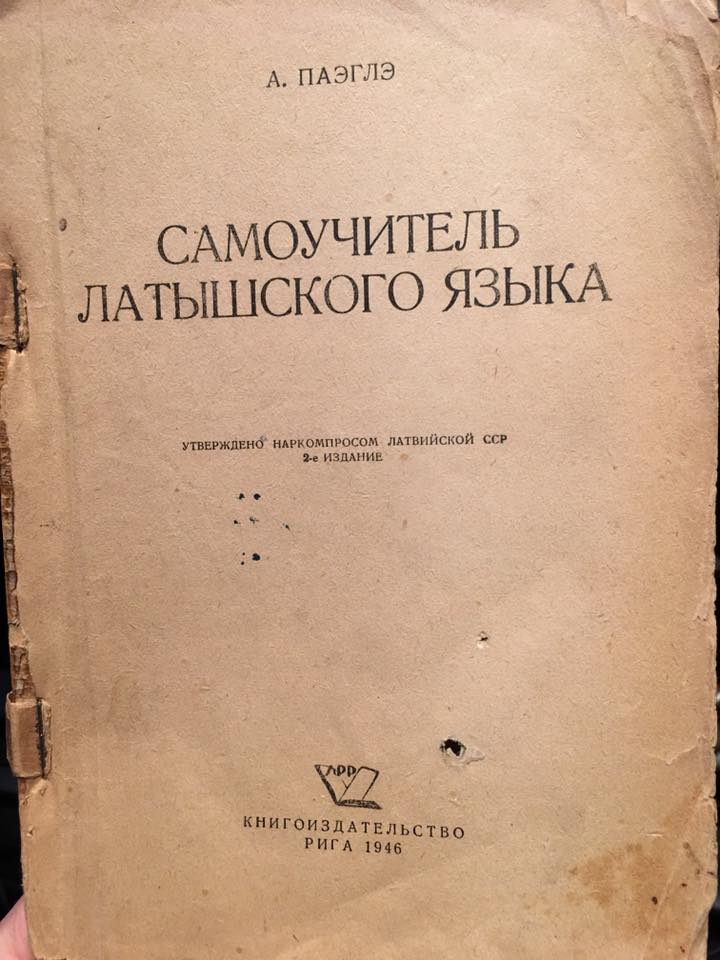 In addition to words similar to the Russian language, there are many words borrowed from Russian in the Latvian language: zvanīt – звонить [zvon’it’], krusts – крест [kr’est], nedēļa – неделя [nedel’a], pagrabs – погреб [pogr’eb], svece – свеча [sv’echa], zābaks – сапог [sapog], zeme – земля [z’eml’a] etc.
In addition to words similar to the Russian language, there are many words borrowed from Russian in the Latvian language: zvanīt – звонить [zvon’it’], krusts – крест [kr’est], nedēļa – неделя [nedel’a], pagrabs – погреб [pogr’eb], svece – свеча [sv’echa], zābaks – сапог [sapog], zeme – земля [z’eml’a] etc.
In the Latvian language some influence of estolian adverbs is also noticed.
The Latvian language, like any other, is constantly evolving, and new words appear in it more and more. In terms of its flexibility and sonority, the Latvian language is not inferior to many European languages. K. Mühlenbach (1853–1916) and prof. Y. Endzelin occupy an honorable place among researchers of the Latvian language. Of the writers of the new time, the development of the Latvian language and the formation of new words were most greatly contributed by the brilliant folk poet Janis Rainis (1865–1929).
On the photograph you can see self-instruction manual for people who study Latvian language, released in January 1946. The very fact of publication of this textbook demonstrates that great attention was paid to the development and dissemination of the Latvian language in the territory of the Latvian SSR: don’t forget that the Great Patriotic War had just ended, factories and dwellings were still in ruins.
Examples of borrowing:
- from middle low German language: elle – hell, mūris – stone wall, stunda – hour;
- from Russian language: bļoda – bowl (from “блюдо”), sods – punishment (from “судить”), grēks – sin (from “грех”);
- from Baltic-Finnish languages: kāzas – wedding, puika – boy.
